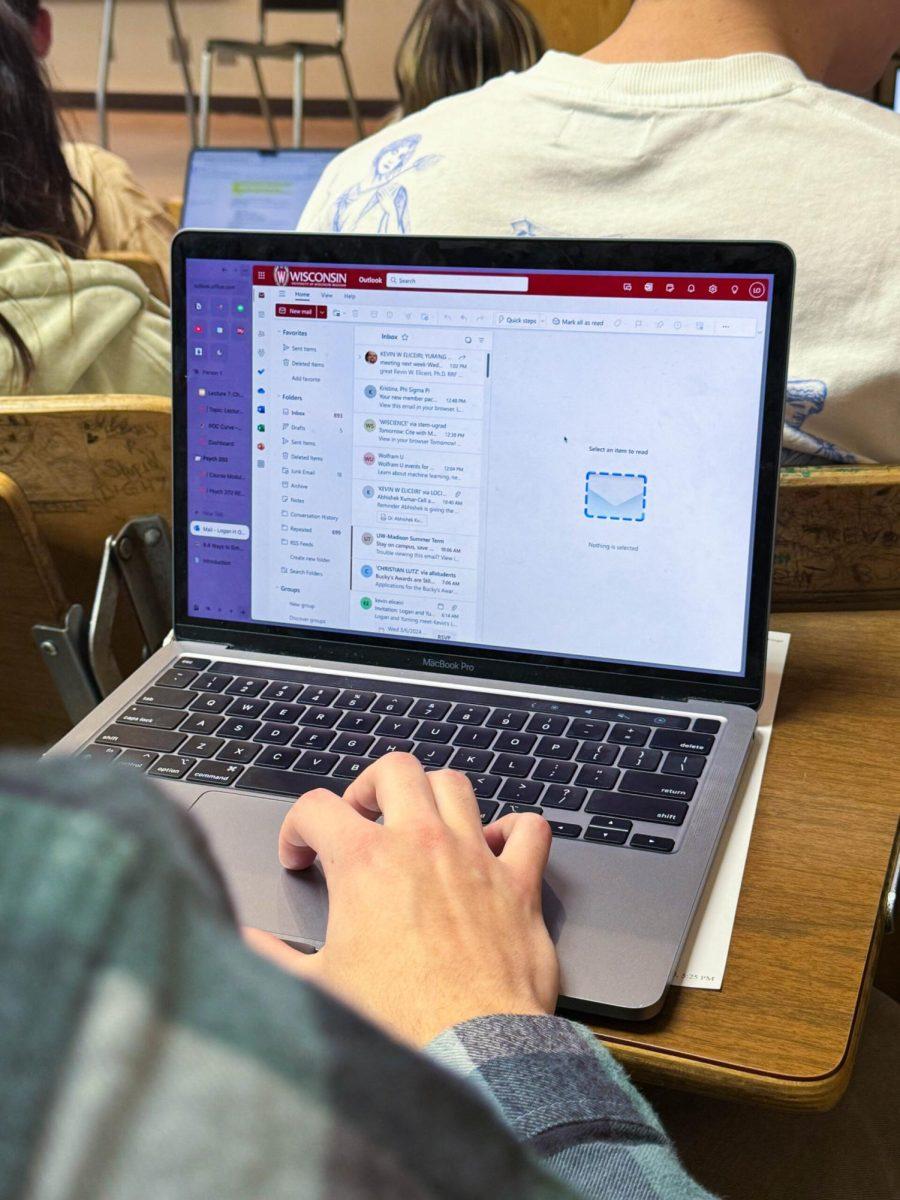Microsoft 365 and Google Workspace accounts, which were once held indefinitely by University of Wisconsin students after graduation, have been largely deactivated for alumni and will be terminated nine months after graduation for every graduating class beginning this spring, according to the UW Division of Information Technology.
The move to end access to M365 accounts for graduates comes a decade after UW first migrated their email and calendar systems to the Microsoft platform, which has left the university with approximately 110,000 alumni accounts, according to UW News and DoIT. The decision to terminate email and M365 accounts nine months after graduation was made in response to changes in the Microsoft education license, security concerns with alumni email accounts and rising maintenance costs, director of user services at DoIT Jamie Gutkowski said in an email statement to The Badger Herald.
“Many factors contributed to the decision to end email access for alumni and former students, including major cybersecurity risks posed by these accounts, significant changes to costs for storage and licensing, and requests from former students who no longer wanted to maintain these accounts,” Gutkowski said.
The termination of student accounts nine months after graduation this spring is the final phase in a deactivation process that has been in place since February of 2023. DoIT divided extant wisc.edu accounts into three populations based on activity and account age.
One major concern surrounding the maintenance of alumni accounts stemmed from security deficiencies of graduated student’s accounts not using two-factor authentication. According to DoIT, 99% of compromised email accounts belong to former students. Gutkowski said the security risks posed by these floating email accounts was a major factor in the decision to terminate them.
According to DoIT former data and metrics student lead Matt Moran, maintaining the two-factor authentication software licensing for former student accounts would likely have imposed serious costs on the university, but a cheaper alternative like Microsoft authenticator could have helped the university secure alumni accounts for little to no extra cost.
“They could have transitioned to Microsoft authenticator just for alumni,” Moran said. “They can also do two-factor [authentication] via a text to your phone number. And that’s something that by default Microsoft supports as well. So there’s plenty of workarounds.”
https://badgerherald.com/?p=319874&preview=true
Moran also said the termination of the Microsoft and Google Workspace accounts after graduation will have serious consequences for UW alumni both in how they establish themselves as young professionals and in how they maintain ties to the university.
According to Moran, this change will most directly impact alumni in three ways — job applications, networking and the loss of valuable data.
Since having a wisc.edu email address allows recruiters to draw an instant connection between applicants and their connection to UW, losing one’s UW email is a disadvantage for recent graduates, Moran said. Maintaining a UW identifier in email addresses also eases communication between university contacts after graduation.
“It’s probably easier to get an answer from an old professor, or even a cold call to somebody who went to UW and is now working in a company and reach out to them from your wisc.edu email than your personal one,” Moran said. “Everyone has a Gmail. A wisc.edu email is a privilege, admittedly something you pay for. You pay tuition, this is something you get out of it.”
Due to similar licensing and security concerns, the Wisconsin Foundation and Alumni Association has undergone a similar process of deactivation and scrubbing for their Google Suite accounts and will no longer be accepting new account requests, though they still maintain some accounts for active users.
According to Chief Alumni Engagement Officer for the WFAA Sarah Schutt, in the wake of licensing changes, the expense of maintaining alumni accounts had simply become untenable, costing WFAA over $1 million each year.
After a 15-month scrubbing process, which included identifying inactive accounts, accounts above storage limits and giving all account holders forewarning, WFAA was left with 22,000 remaining active users — less than half of all accounts prior to the scrubbing.
Still, the loss of the uwalumni.com email account would not be nearly as impactful if alumni could still access their wisc.edu accounts, Schutt said.
“It used to be something we would really encourage people upon graduation to get and we just aren’t doing that anymore,” Schutt said. “But nobody’s really missing it, because for the last seven or eight years, they’ve just kept their wisc.edu email addresses. This is almost more impactful, because in our case they just went from uwalumni.com to wisc.edu. Now they’re going from wisc.edu to nothing.”
WFAA actively maintains a database for private email addresses, and graduates can create an account with the alumni association at no cost for two years, which Schutt highly encourages students to do upon graduating.
DoIT also encourages current students to be proactive in their private email use to temper the effects of losing their wisc.edu email after graduating.
“We encourage all current students to think ahead and consider using a personal account for things you will need access to beyond graduation,” Gutkowski said.













